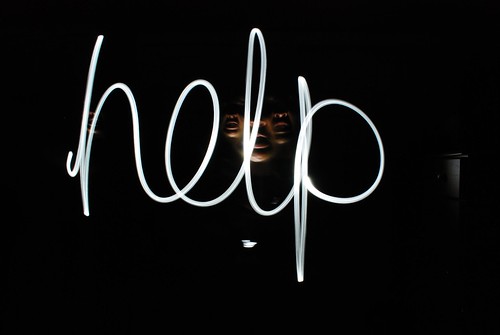Is asking for help a challenge for you or someone you love?
We often create more suffering as a result of our desire to control the outcome of a situation versus lessoning our suffering by asking for help. Frequently for those in recovery, whether from substance abuse, mental illness, or a combination thereof, asking for help is a learned skill. It’s something that is derived from doing step work, working with a therapist, and going to process groups. Sometimes asking for help requires that we confront the very thing we are struggling with: ego.
What does not asking for help look like?
1. Loss of Control. Assuming that one will lose control of a situation if they ask for help will inevitably create higher levels of stress. The fact is, we cannot do everything ourselves, at least not efficiently or without risk to our mental health. In our efforts to be in control, we end up feeling out of control and overwhelmed.
Ask yourself: “Would I rather do several things that are mediocre or one or two that are phenomenal?” Or “Would it be better for me to do a little bit less but with more awareness and less stress and more effectively?” I have honestly found that slowing down and asking for help increases one’s efficiency and lowers stress.
2. Fear. Fear is another component in one’s unwillingness to ask for help. It could be a fear of not being good enough, a fear of being viewed as less than, or a fear of failure. We can turn our backs on fear or we can face it. In order to healing and evolve in our recovery, the only way out of this mess is through it. Think of it this way, the shadow on a wall is far larger than the person or thing making the shadow. That shadow tantamount to your fear: far larger than what is creating it. Asking for help is liberating. You are good enough; you are not a failure.
3. Perfectionism. “It has to be perfect!” “If I don’t do it, then it won’t be done ‘right.'” Does this sound familiar? You know how to do what needs to be done, and you can do it “right,” or faster than anyone else, right? Wrong. This sense that something won’t be done correctly unless we do it ourselves is a lie we tell ourselves to justify our inability or fear of asking for help. I am a perfectionist, and I can tell you, this character defect gets in my way more often than not. It is the “shadow” I work with when I struggle with asking for help. What I have started to learn is that perfection is in everything: it is in the flaws, the nicks, and the wrinkles. Embracing that has enabled me to ask for help.
Whether you are the control freak, in fear, or a perfectionist or a combination of all three, take this opportunity to pause and take some steps toward change. There is no reason you should have to do everything on your own, or from fear of judgment. With each new venture is an opportunity to do it with less suffering, and less drama.
Remember:
1: It’s ok to “not know.”
2: Perfection is a perspective.
3. Letting go is liberating.
4. Asking for help leads to self-care.
5. You cannot do this alone.







